Cornell Watson: Behind the Mask
2020 Alexia Grant professional winner
This photo series is in honor of my ancestors who smiled when they were not happy, laughed when nothing was funny and cried when they were not sad so that I could be here today.
This is for the times we cut or straighten our hair to be “professional.” For the times we pretend to be happy around our managers after seeing photos of them in Blackface. For the days we show up to work and smile after watching our brothers and sisters lynched on livestream. For the times we change our voices and profile pics to make hotel and dinner reservations. For the times we pretend to be strong when we are dying from the weight of racism. For the times we cheerfully congratulate white mediocrity getting the big promotion. For the times we remove our hijab before the job interview. For the times we speak English in public to avoid confrontation. For the times we are referred to as the “other Black employee” and we don’t correct them. For the times we are asked to clean something up because they assume we are the janitor. For the times we are told to go back to our country and would go if we knew what country we came from. For the times we are followed around while shopping and resign to purchase something to prove a point. For the times we don’t lay hands after being called nigger. This is for all the times we wore the mask.
This photo project is a continuation of my photo series titled “Behind the Mask,” which was recently featured in The Washington Post. Through words and visuals this project tells the stories of Black people and how we wear the mask. This work is important as it tells Black stories in a different way that is powerful and thought-provoking, that inspires people to look really deep within themselves to understand how they have contributed to what they see. The continuation of this series will also expand on the diversity of Blackness to include more nationalities, religions and ethnicities.
I have partnered with Village of Wisdom to donate art sales from the current exhibition of the series to help fund the work they do in fighting education inequity and inequality. The end goal for this project is to create a photo book and donate a portion of the book sales to help fund similar mission-driven work in the Black community.

My best friend is the father of three Black boys and it was his birthday. The police murders of Ahmaud Aubrey, Breonna Taylor and George Floyd were front of mind and this birthday celebration was supposed to be a brief break from reality. We were pouring drinks in the kitchen when I asked him how it felt turning another year older. What he said, I was not expecting. The essence of his response was that his birthday was a reminder that he is one more year closer to having to explain to his boys why playing outside with toy guns was dangerous. One more year closer to explaining why that unarmed Black man died at the hands of those paid to protect him. One more year closer to having that dreadful talk about being Black boys in America. We created this photo on another Birthday, the 4th of July. In the process of creating the photograph someone approached and asked, “What is this supposed to represent?” Shortly after, a white woman paddled by in her boat. She yelled to her husband, “Look honey! Look at the flag, that’s just not right!” She could only see the flag submerged in the water and not us drowning in it.
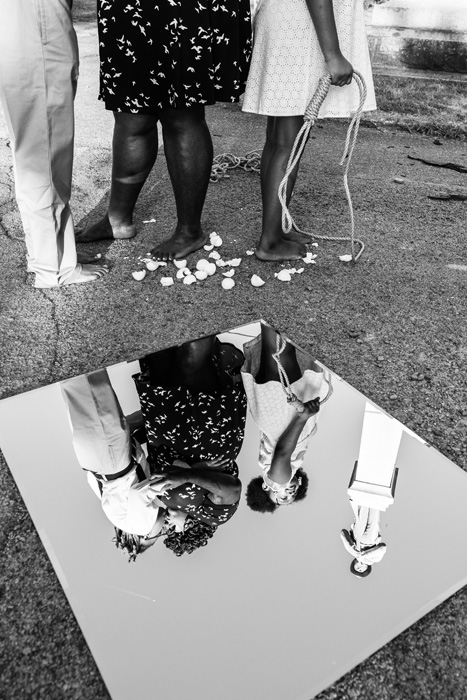
Growing up in rural America is an experience with plenty of obvious reminders that we have not made much racial progress. Racism is rampant in every corner of life. The air we breathe, the water we drink, schools we attend, the policing of our communities, the laws we live under, the prison population that sits on land we were enslaved on, the streets named after our oppressors and the statues that hover over us like scarecrows. It’s in our face everywhere we go. If you’re a Black woman then there is additional oppression from the patriarchy. If you’re a Black queer woman, there is homophobia. And yet, there is happiness, love and strength. Being Black queer women while raising a Black daughter means constantly having to walk on egg shells. We knew we only had a few minutes to create this photograph because trouble is never far away when Black people are existing in public spaces. We were approached by two white men in a pick-up truck just as we were wrapping up. They were saying something to us, but I could not make out what it was. And maybe that was for the best.

We brought you into this world. The land you stole, the economy you propped up on the backs of our ancestors, the wars we fought for your freedom when we weren’t free brought you into this world. We are tired. We are tired of police brutality. We are tired of fighting every breathing minute for a quality education. We are tired of fighting for the acknowledgement of and rectification for unequal pay, voter suppression, loan discrimination and redlining. We are tired of having the cops called on us for simply existing. Somewhere between prayer and burning it all down is the America we worked to build. During the creation of this photograph a black pick-up truck lingered ominously. Shortly after finishing, two Halifax county sheriffs pulled up as we were leaving. We were the only ones there.
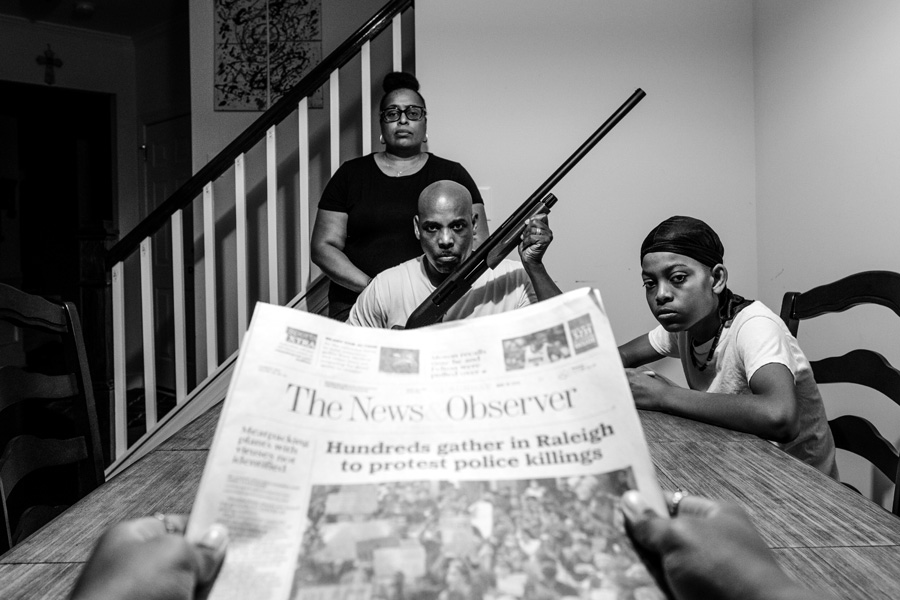
Inspired by John Wilson’s “The Incident” and Carrie Mae Weems’ “The Kitchen Table Series.”
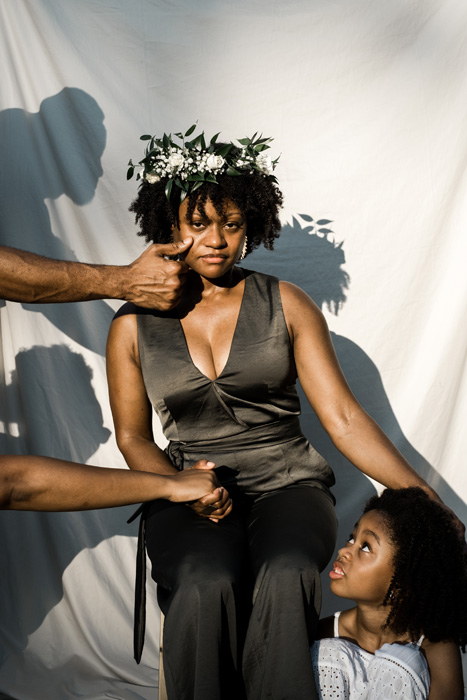
Family, both blood and chosen, are the foundation of our survival. Black women are the roots, the trunk, the branch and the leaves. Black women create the oxygen we breathe. This is an Ode to Black women. Thank you.
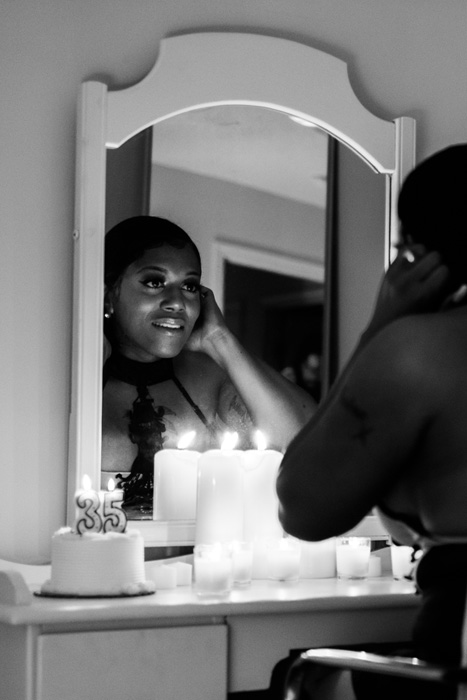
This is a story that I only bore witness to, but this is not my story. How many happy stories, sad stories, angry stories, excited stories, do we not know because our sisters are stolen from us? How many of our sisters live a subdued version of their story because there is something or someone looming, ready to snuff out their light? A mask, on a mask, on a mask.
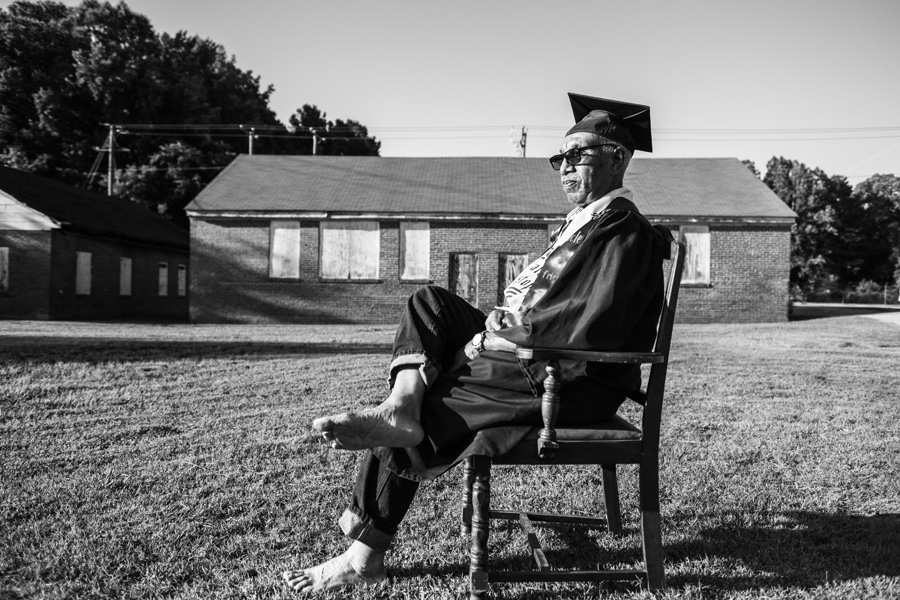
“I walked to school sometimes with no shoes because I didn’t have any.” In front of the remnants of the segregated school he attended, his daughter and his granddaughter laughed when I asked him to remove his shoes. But his feet had already known that ground. We survive our education system with no boots. We fight wars and return home with no boots. We unselfishly put America’s needs before ours with no boots. We survive in America with no boots. There are no boot straps for us to pull ourselves up by, because there are no boots.
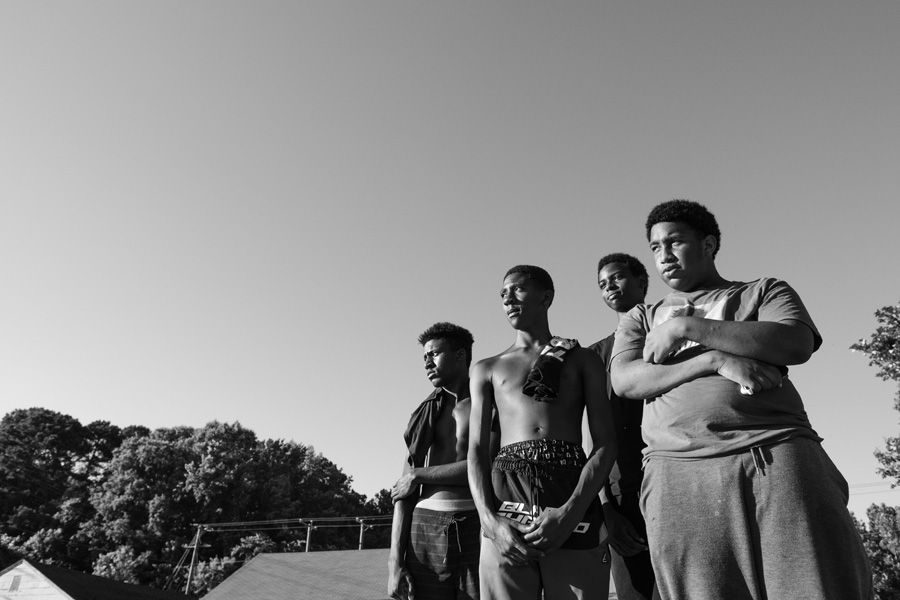
CORNELL WATSON: You deserve to have access to the same education they have 4 miles away. You deserve to not have confederate tourist signs and monuments in your neighborhood. You deserve to have resources and not resource officers. You deserve the benefit of the doubt. You deserve to know your history more than one month a year. You deserve a childhood without racial profiling and “the talk”. You deserve to be seen as kids and not criminals. You deserve to know that your Blackness is beautiful. You deserve better.
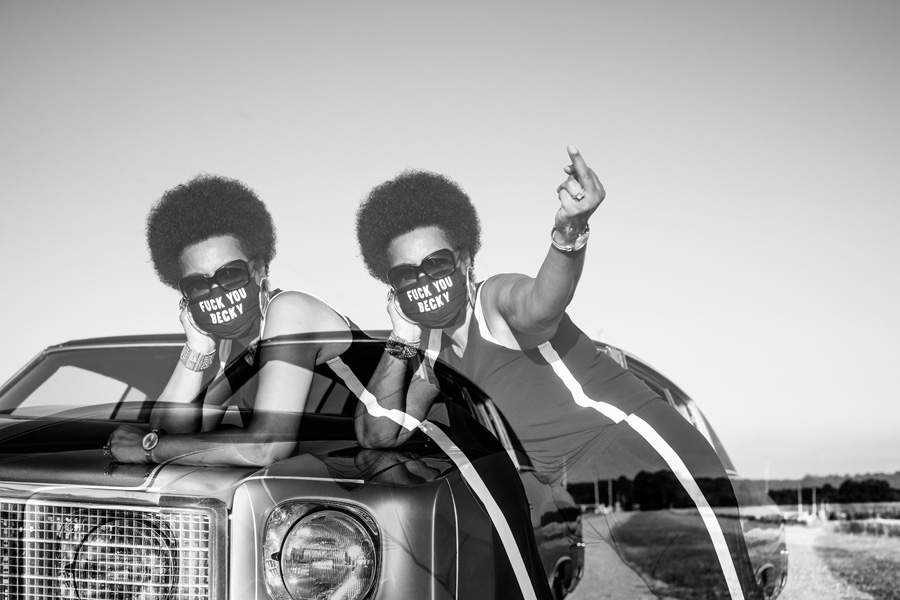
CORNELL WATSON: “Becky: (noun); a white woman who uses her privilege as a weapon, a ladder or an excuse.” -Michael Harriot.
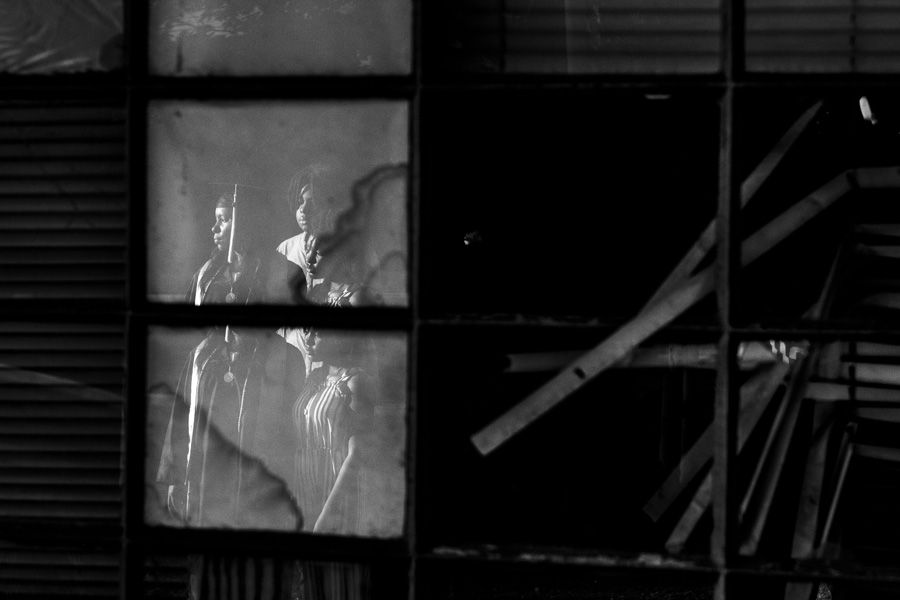
CORNELL WATSON: Donning her cap and gown they stood in east Durham, N.C. where she grew up. Staring at the effects of modern-day racism, her children were visibly uncomfortable. Her son said, “Honestly, how did you live through that?” These conditions were not meant for us to live through. “Sometimes I feel guilty for making it out and my friends and family are still there. It’s sad because I know the lack of resources and opportunities are what contributes to people staying in poverty.”
Cornell Watson is a Black photographer based in Durham, North Carolina, who is passionate about visualizing Black stories. He became a photographer in 2018 after several years of working in human relations and talent acquisition and just before the birth of his daughter. Watson is a contributing photographer for Durham Magazine and his work has been published in The Washington Post, The New York Times, CNBC and Business Insider. He won several honors in the 2020 Documentary Family Awards, including Best Overall Image (1st place), Black Lives Matter (1st place), Photo Series (2nd place) and the Judge’s Choice Award for single image and photo series.